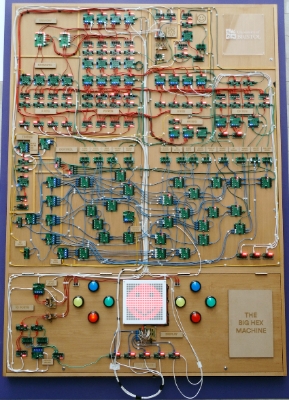Grace Hopper Awarded Honour
Grace Hopper is a towering figure in the computer history. Here she is being interviewed at 80 years of age. Today this is especially relevant since she was awarded the Presidential Medal of Freedom today. .@POTUS names #USNavy computer pioneer Rear Adm. Grace Hopper one of 21 Presidential Medal of Freedom recipients – https://t.co/raxd3upel1 […]
The post Grace Hopper Awarded Honour appeared first on EtherealMind.

 SigFox says there are 10 million objects registered on its network, spanning 26 countries.
SigFox says there are 10 million objects registered on its network, spanning 26 countries. AWS customers can now subscribe to SaaS applications directly through AWS Marketplace.
AWS customers can now subscribe to SaaS applications directly through AWS Marketplace.
